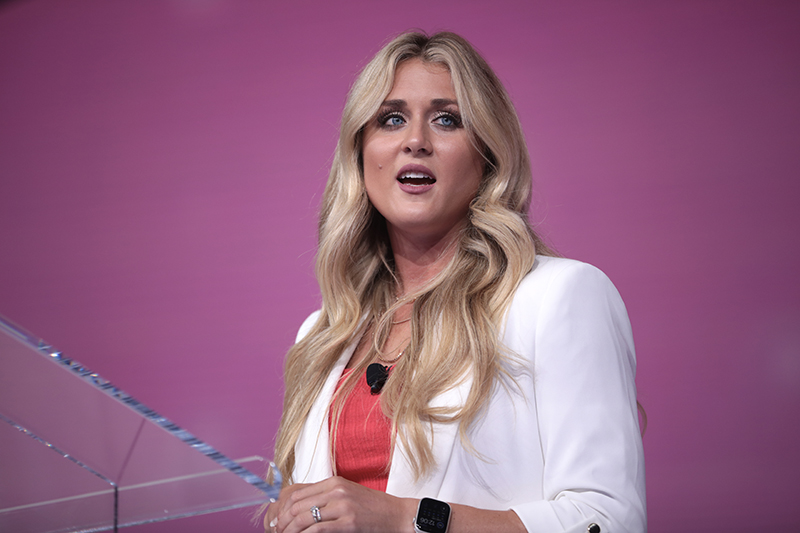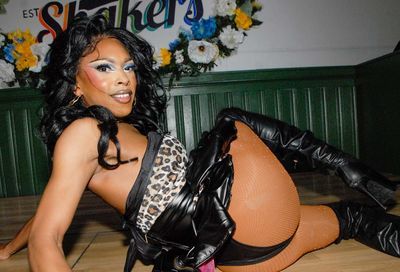Dawn Staley Defends Trans Athlete Participation
The coach of NCAA champion South Carolina women's basketball team shares her opinion on trans athletes ahead of big game.

University of South Carolina women’s basketball coach Dawn Staley grabbed headlines this past weekend when she weighed in on the side of allowing transgender athletes to participate in sports.
On April 6, the day before her Lady Gamecocks were to play in the NCAA Division I “March Madness” Tournament Championship game against Iowa, Staley — who freely offers her opinion on any topic, regardless if her comments may offend some people — was asked about her position on transgender athletes competing in women’s sports.
The question came from Dan Zaksheske, a reporter for OutKick, a website with a strong conservative viewpoint that markets itself as an “everyman” alternative to mainstream sports news outlets.
“You just talked about what a massive weekend this is for women’s basketball, women’s sports in general,” Zaksheske said. “One of the major issues facing women’s sports now is the debate/discussion/topic about transgender athletes, biological men in women’s sports. I was wondering if you could tell me your position on that issue.”
“Damn, you got deep on me, didn’t you?” Staley responded after taking a long sip of water. “I’m on the opinion of, if you’re a woman, you should play. If you consider yourself a woman and you want to play sports or vice versa, you should be able to play. That’s my opinion.”
After a pause and no initial response from Zaksheske, Staley asked, “You want me to go deeper?”
“Do you think transgender women should be able to participate?” Zaksheske asked.
“That’s the question you want to ask, I’ll give you that. Yes, yes. So now the barnstormer people are going to flood my timeline and be a distraction to me on one of the biggest days of our game, and I’m okay with that. I really am,” Staley said, acknowledging the blowback and vitriol she — predictably — would receive after her comments were republished.
University of Iowa women’s basketball coach Lisa Bluder was asked the same set of questions during her press availability session later in the day, but sidestepped the question.
“I understand it’s a topic that people are interested in,” Bluder said. “But today my focus is on the game tomorrow, my players. It’s an important game we have tomorrow, and that’s what I want to be here to talk about. But I know it’s an important issue for another time.”
Transgender athletes’ participation in sports has gained much attention as the visibility of the transgender community at large has increased in recent years, with conservatives and Republican politicians especially trumpeting the issue.
Capitalizing on public opinion, with polls showing that most Americans oppose allowing transgender females to compete in women’s sports, Republican-led legislatures have pushed bills seeking to ban transgender athletes at the K-12 and collegiate levels from competing on sports teams matching their gender identity.
The push for prohibitions on transgender participation has also gained traction at the federal level. Last year, the Republican-controlled U.S. House of Representatives passed, on a party-line vote, the “Protection of Women and Girls in Sports Act,” a bill to prohibit transgender athletes from competing on sports teams for any schools that receive money from the federal government.
The Democratic-led U.S. Senate has taken no action on the bill, and President Joe Biden has threatened to veto it should it pass.
The NCAA’s current policy on transgender participation, adopted in 2022, requires individual sports to determine athlete eligibility based on standards set by each sport’s governing body, or each sport’s international federation policy.
Trans athletes cleared to compete must also subject themselves to routine testing to ensure the level of testosterone in their blood has been consistently below a certain level.
If no existing policy exists for a sport, the sport will follow International Olympic Committee standards, which requires trans athletes to have undergone a year of hormone therapy prior to competing in a female-designated sport. But the NCAA has thus far resisted pressure to pass a categorical ban on transgender competitors.
Despite the NCAA’s efforts to sidestep the issue by allowing individual sporting bodies to determine eligibility, that stance has led to the NCAA being sued by female athletes who insist that allowing any trans athlete to compete as a woman is inherently unfair.
Support Metro Weekly’s Journalism
These are challenging times for news organizations. And yet it’s crucial we stay active and provide vital resources and information to both our local readers and the world. So won’t you please take a moment and consider supporting Metro Weekly with a membership? For as little as $5 a month, you can help ensure Metro Weekly magazine and MetroWeekly.com remain free, viable resources as we provide the best, most diverse, culturally-resonant LGBTQ coverage in both the D.C. region and around the world. Memberships come with exclusive perks and discounts, your own personal digital delivery of each week’s magazine (and an archive), access to our Member's Lounge when it launches this fall, and exclusive members-only items like Metro Weekly Membership Mugs and Tote Bags! Check out all our membership levels here and please join us today!

























